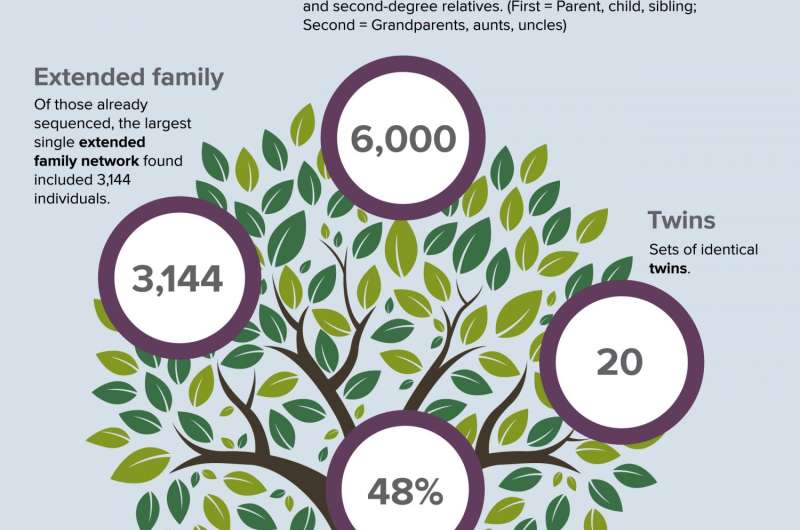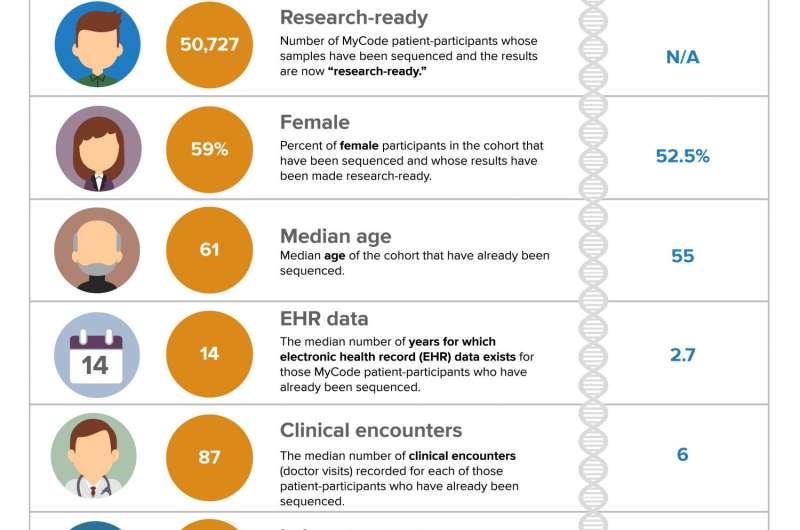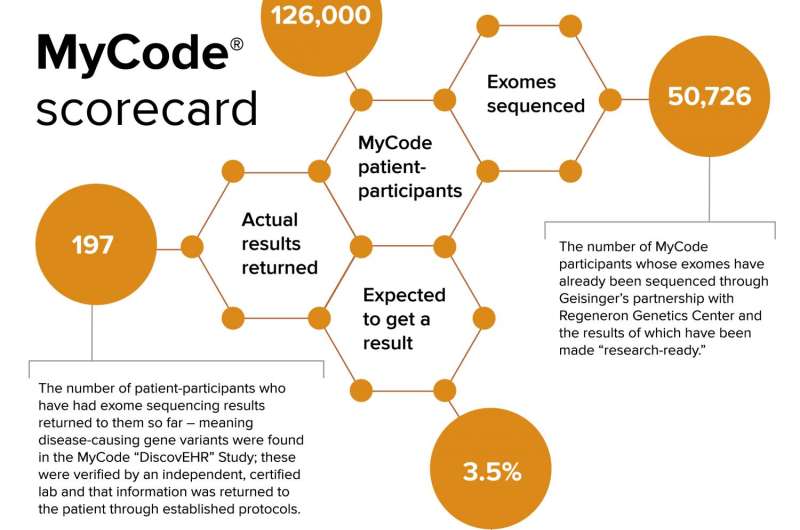MyCode study finds familia hypercholesterolemia is under diagnosed, under treated

A study conducted by Geisinger Health System in collaboration with the Regeneron Genetics Center (RGC) has found that a life-threatening genetic disorder known as Familial Hypercholesterolemia (FH) is both underdiagnosed and undertreated. It was published in the peer-reviewed journal Science on Dec. 23 alongside another significant study from the same Geisinger-RGC collaboration known as DiscovEHR. That other study describes exome sequencing and analyses of the first 50,726 adult participants in the DiscovEHR cohort - all members of the Geisinger MyCode Community Health Initiative.
In the FH study, the collaborators examined genetic variants causing FH in the DiscovEHR cohort and then compared the findings against the de-identified medical histories of these patients as contained in Geisinger electronic health records. Traditionally, in the United States, FH is diagnosed in patients with high cholesterol who also have a family history of early heart attacks and strokes. Genetic testing for FH is currently uncommon in clinical practice.
FH is caused by a defect that makes the body unable to remove "bad" cholesterol from the blood. This cholesterol (low density lipoprotein cholesterol or LDL-C) then accumulates, often undetected, and can lead to early death from heart attacks or stroke - even in very young people.
Results of the new study found many undiagnosed cases of FH and helped to define the extent of FH in the general population.
"The study shows us that FH is about twice as common as it was once thought to be, and that large-scale genetic testing for FH helps identify cases that would otherwise be missed," said Michael F. Murray, M.D., Geisinger director of clinical genomics. "We now hope to use DNA sequencing to guide better management for patients."

Among the many findings of the study were that 1 in every 256 people has a disease-causing mutation, or variant, in one of the three FH genes. It showed that participants with a deleterious FH gene variant had significantly higher "bad" cholesterol than those without an FH gene variant. They also had significantly increased odds of both general and premature coronary artery disease.
"Being able to connect patient's de-identified medical records with their DNA data is an advantage that few others in this field have. Paired with the RGC's unique technological and analytical resources, we are able to make meaningful discoveries that may advance the implementation of precision medicine today and the development of new or improved medicines tomorrow," said Noura Abul-Husn, M.D., Ph.D., associate director of translational genetics at the RGC and co-author of the paper.
The study identified 35 mutations, or variants, in the genes LDLR, APOB, and PCSK9 that have been determined to cause FH. Only 24 percent of people who carry FH-causing variants had sufficient criteria within their electronic health records to support a probable or definite FH diagnosis, meaning that without genetic confirmation, many of these patients would go undiagnosed and likely undertreated. Indeed, 42 percent of people with these FH-causing variants did not have a recent active prescription for statins, the first line therapy for cholesterol lowering. Among statin-treated people with FH-causing variants, less than half met goals for cholesterol lowering.

"Geisinger is committed to translating this important research directly into improved care for our patients," said Geisinger Executive Vice President and Chief Scientific Officer David H. Ledbetter, Ph.D. "We have begun a major effort to confirm individual patient findings and inform individual participants and their doctors when genetic findings, that are known to cause illness, are discovered in our population," he said.
FH is one of 27 genetic conditions being targeted at Geisinger. So far, nearly 200 patients - including 29 FH carriers - have already been informed they carry one or more disease-causing genetic mutations with consequences that can be treated. These conditions are mainly related to risk for cancer or cardiovascular illness. The effort to return individual results will continue as more findings are confirmed.
More information: "Genetic identification of familial hypercholesterolemia within a single U.S. health care system," Science, science.sciencemag.org/cgi/doi … 1126/science.aaf7000
"Distribution and clinical impact of functional variants in 50,726 whole-exome sequences from the DiscovEHR study," Science, science.sciencemag.org/cgi/doi … 1126/science.aaf6814

















